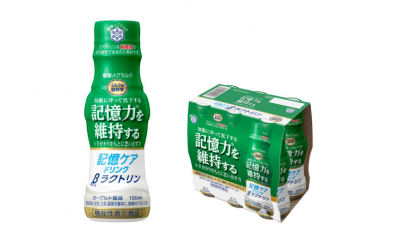Essential amino acid supplementation did not improve symptoms of dementia – Ajinomoto-funded RCT

The Japanese firm has been studying the use of amino acids on muscle and cognitive health.
It has also launched supplement containing essential amino acids that claims to maintain attention and cognitive flexibility in healthy middle-aged and elderly consumers, on top of publishing the effects of the supplementation on Frontiers in Nutrition.
In its study recently published on the International Journal of Geriatric Psychiatry, it was found that the supplementation of essential amino acids, however, has not shown benefits on the behavioural and psychological symptoms of dementia (BPSD).
Involving 36 patients with Alzheimer’s Disease, the 28-day double-blind, randomised, placebo-controlled trial was conducted by researchers from Ajinomoto, Mishima Hospital, and Niigata University’s Brain Research Institute.
The intervention group, which consisted of 17 subjects, took in an amino acid mixture containing 1.61 g of leucine, 0.43 g of isoleucine, 0.44 g of valine, 0.37 g of threonine, 0.07 g of histidine hydrochloride, 0.67 g of lysine hydrochloride, 0.13 g of methionine, 0.03 g tryptophan, and 0.27 g of phenylalanine.
The remaining 19 subjects in the placebo group took powdered reduced malt starch syrup.
During the trial, the intake of amino acid and protein supplements, docosahexaenoic acid, eicosapentaenoic acid, and ginkgo biloba supplements was prohibited.
Findings
No significant differences were seen between the intervention and placebo group in terms of behavioural and psychological symptoms of dementia during the midpoint and by the end of the trial.
Behavioural and psychological symptoms of dementia was measured by the Neuropsychiatric Inventory-12 (NPI-12) item, trail making test A and B, and clinical dementia rating scale scores.
For instance, the NPI-12 score which assesses 12 items including irritability, agitation, anxiety, appetite, sleep and eating disorders, showed no significant difference between the two groups.
In fact, there was more improvement seen in the placebo group in absolute terms.
For instance, NPI-12 score for the placebo group went down from 9.7 ± 6.8 to 7.3 ± 7.9 – a change of −3.0 ± 3.7 by the end of the trial, while that of the intervention group only saw a change of −1.7 ± 2.8 from 12.1 ± 10.0 to 10.7 ± 11.2.
“There was no significant difference between the groups on Day 14 and Day 28. No significant difference was confirmed in the comparison between groups for each subscore of NPI-12,” said the researchers.
However, the researchers noted that there was improved Frontal Assessment Battery (FAB) scores in the intervention group.
The FAB score evaluates executive function and the results suggested that the frontal lobe-related symptoms were alleviated by the intake of the amino acid mixture.
“Considering that the amino acid mixture intervention showed efficacy on the FAB only…It could be suggested that the amino acid mixture had a moderating effect on the decline in executive function.
“Essential amino acid mixture did not show benefits on the behavioural and psychological symptoms of dementia (BPSD), though it may improve executive function in patients with AD,” the researchers concluded.
Plasma amino acid concentrations
Threonine concentration was significantly higher in the intervention group than in the placebo group during the halfway mark and also end of the trial.
Alanine concentration was also significantly higher in the intervention group halfway through the trial.
According to the researchers, essential amino acids could pass through the blood-brain barrier via amino acid transporters and are used as precursors of neurotransmitters in the brain.
“Amino acid intake may also be associated with AD symptoms in humans because it has been reported that the amount of neurotransmitters is imbalanced in the brains of AD patients in clinical study,” the researchers said, citing findings published in 4 and 5.
They also pointed out that protein intake was reportedly reduced in dementia patients.
“Longitudinal epidemiological studies of the population have reported that dietary amino acid intake is associated with future cognitive decline,” they added.
Adverse events
Four subjects from each group had reported adverse events, but none of them was judged to have a causal relationship with the interventions by the physician.
In the intervention group, one of the subjects had to be hospitalised for pneumonia and sepsis, while one of the subjects in the placebo group was hospitalised for pneumonia.
Source: International Journal of Geriatric Psychiatry
Effects of an essential amino acid mixture on behavioral and psychological symptoms of dementia and executive function in patients with Alzheimer's disease: A double-blind, randomized, placebo-controlled exploratory clinical trial
https://doi.org/10.1002/gps.5782
Authors: Takada M et al



















